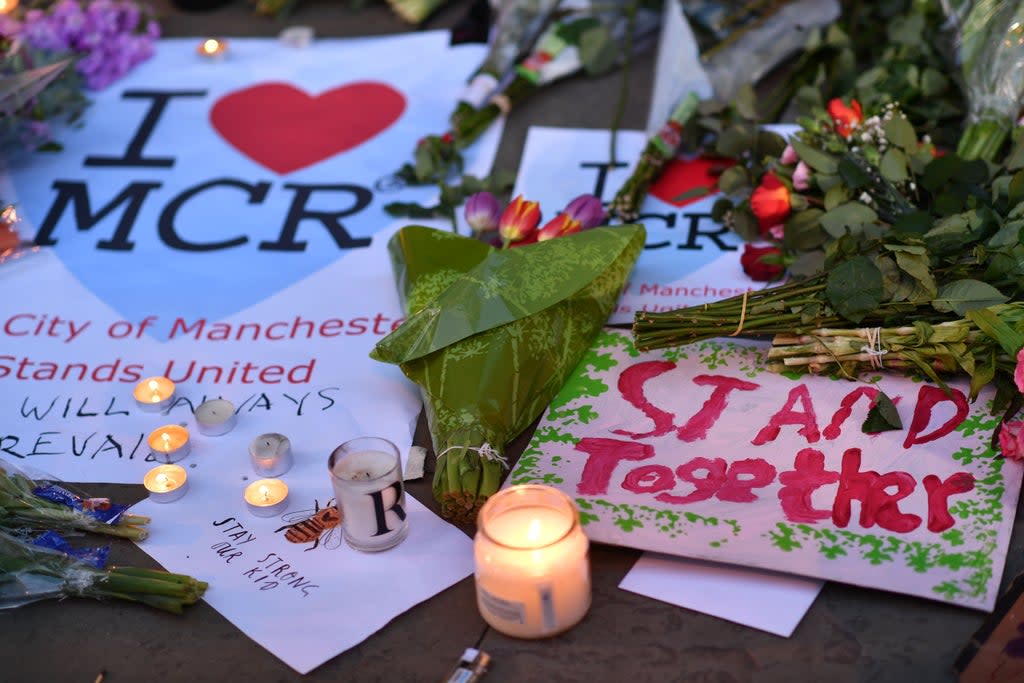Intelligence on Manchester Arena bomber ‘not fully appreciated’ by MI5

Intelligence received by MI5 about the Manchester Arena bomber in the months before the attack was not fully appreciated at the time, an inquiry has heard.
Twice in the months leading up to the bombing information was obtained about Salman Abedi, but was deemed to relate to possibly non-nefarious or non-terrorist criminality.
Abedi murdered 22 innocent bystanders and injured hundreds of other people in the foyer of Manchester Arena at the end of an Ariana Grande concert on 22 May 2017.
The inquiry heard on Monday that in retrospect the intelligence was highly relevant to the planned attack, but the significance of it was not fully appreciated at the time.
Between December 2013 to January 2017, the inquiry was told that Abedi was identified as being in direct contact with three men, all separate “subjects of interest” – one suspected of planning travel to Syria, one with links to al-Qaida and the third with links to extremists in Libya.
And between April 2016 and April 2017, a month before the attack, he was identified as a second-level contact with three more subjects of interest, all with suspected links to the Islamic State terror group.
On one occasion Abedi had himself been made a “subject of interest” but his file was closed five months later, in July 2014, based on a “lack of engagement” with extremists.
It was suggested at the inquiry on Monday that someone in MI5 should have “joined the dots” as intelligence about the Manchester-born suicide bomber came in.
However, a senior MI5 officer, identified only as witness J, said it was “reasonable” to decide not to investigate Abedi based on the intelligence received before the attack.
Paul Greaney QC, counsel to the inquiry, asked the witness: “The more a person of an extremist mindset I’m in contact with, the greater the concern I might share their mindset?”
Witness J said: “It doesn’t necessarily follow that having contact with a subject of interest is a cumulative risk.
“We have to make very fine judgments about whether someone meets the threshold of investigation; it can’t be just on contact, it has to be more than that.
“A second-level contact is a contact of a contact. A second-level contact is just that, and I’m not sure that, to me, that indicates a cumulative risk developing.”
The inquiry was also told that Abedi’s name also hit a “priority indicator” during a separate “data-washing exercise” as falling within a small number of former subjects of interest who merited further consideration.
A meeting to consider the results was scheduled for 31 May 2017, nine days after the bombing.
Witness J was asked about two prison visits by Abedi to convicted terrorist Abdalraouf Abdallah, the second of which was in January 2017, shortly before he began planning his terror attack.
Mr Greaney asked him if this information, along with the other intelligence, should have led to Abedi being designated a “subject of interest” and an investigation opened.
Witness J said there was no intelligence that the visit was related to attack planning.
He added: “There was no intelligence to indicate that the contact was related to Salman Abedi posing a threat to national security. The decision to not open (an investigation) was a reasonable one.”
Witness J was also questioned about why Abedi was not referred to the government’s deradicalisation programme, called Prevent.
Sir John Saunders, chairman of the inquiry, said: “You know that since the age of 15 he had been in contact with people who may radicalise.
“When a subject of interest, aged 18, 19, knew he had been in contact with fairly serious people in terrorism.
“You knew about his father having been involved in terrorist activity in Libya.
“Doesn’t he just look like an obvious candidate for someone who might be dragged into terrorism? He ought to have been referred to Prevent.
“I can’t say whether it would have made any difference and neither can you. A Government programme, MI5 did not take advantage of it?”
Witness J said: “When we closed Salman Abedi in 2014 he was one of a group of 20,000 closed SOIs (subjects of interest). I had very little basis for us referring him to Prevent based on the intelligence picture at the time.”
Witness J will be questioned by lawyers for the families of the victims later on Monday and on Tuesday.
The hearing continues.

 Yahoo News
Yahoo News 
